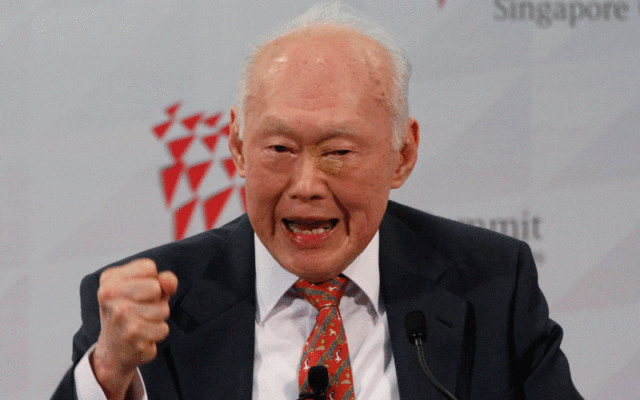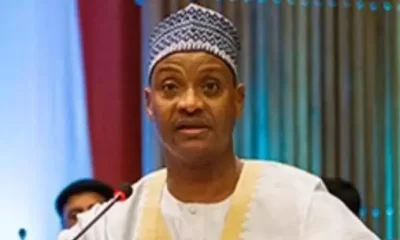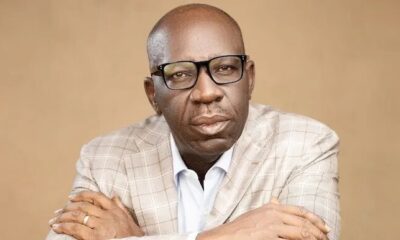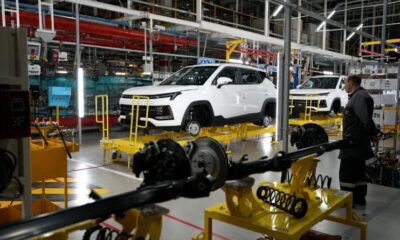Global Issues
The Singapore Magic: A Tribute To Lee Kuan Yew -Adebayo Hassan Taiwo
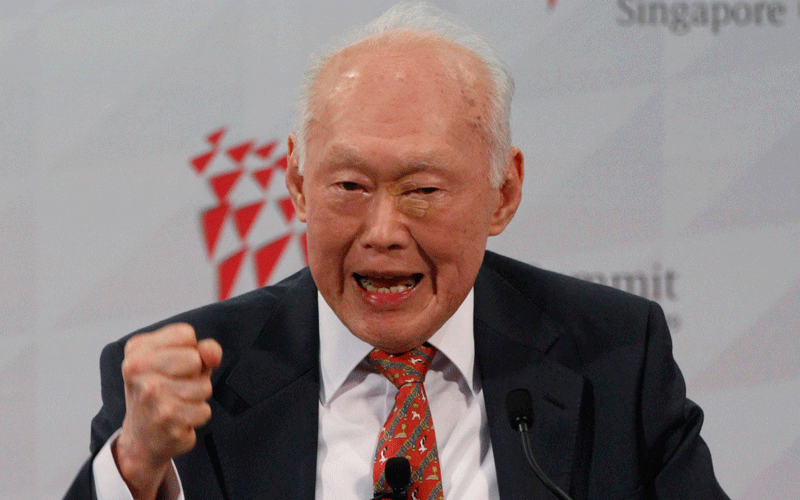
The division of the world into two hemispheres – North and South – at the equator also represents a common way of explaining economic and political inequalities, and gaps that separate rich and poor countries. On one hand, the global North comprises the vastly developed and heavily industrialised market economies of Western Europe, North America, Australia and Japan while, on the other hand, the global South includes poorer and, perhaps, emerging economies, mostly in Africa, Asia and Latin America. The South is long disadvantaged, united by a common history of colonialism, underdevelopment, and integration into the international capitalism as periphery. The disparities between the North and South is further accentuated through the international politico-economic system that is not only fundamentally skewed to the advantage of the richer countries of the North, but also traps the economies and interests of the less developed South within a position of continuous disadvantage.
Yet, some of the countries – Brazil, United Arab Emirates, China, South Korea, Singapore – in the global South have swum against the tide and climbed up the developmental stage so tremendously that they now even compete with the West in terms of income and development. But others, particularly in Africa, like Nigeria, have refused to develop while continuing to present signs of underdevelopment, and constituting sustained embarrassment to all right-mannered patriots. While the stories of other Newly Industrialised Countries, e.g. UAE, India, China are understandable and not so surprising, given the availability of human and material resources, the story of Singapore is a sort of magic and positive manifestation out of lack!
Nobody had given Singapore any chance. It lacked almost everything and all odds were against it – no material resources, industrial capitalists, land. It had, and still has, a minuscule population of about 2 million at independence. It also had the national psychological trauma of being ejected out of the Federation of Malaysia in 1965. But today, Singapore is not just truly developed, it has one of the best and most efficient economic infrastructure in the world, with a broad capacity to meet the needs of its citizens. Also, Singapore has one of the world’s best business and macro-economic environments, explaining why its investment inflow is larger than that of the whole of Africa. In Singapore, poverty is a rarity, with an unemployment rate of about 1.8%; social safety nets, like Public Assistance Scheme and Elder Care Services; and home ownership reaching 90% in 2009, from 29% in 1970 and a deep housing crisis at independence. One man performed the magic – Lee Kuan Yew, the founding father of Singapore and arguably the greatest leader that led any country in the 20th century.
Between 1959 and 1990 that Lee ruled Singapore, the country underwent the magic of transformation, albeit autocratic, thanks to the leadership of a man whose single-minded commitment to the accomplishment of one of history’s most noble and wonderful transformational tasks created the paradox of a modern economy and medieval politics simultaneously. Like the Chinese, Lee showed that liberal democracy is, after all, not the only and automatic precondition for development. Good governance, discipline as well as leadership, defined in terms of courage, vision, character and delivery capacity is it. Lee intentionally created an authoritarian state. He might not be perfect but had to do what was necessary at that time. Influenced by the conservative ideology that citizens could hardly be trusted with rational decision making, conscious of the transformation he had envisioned, Lee set up an authoritarian “nanny” state, disallowing dissent and enfeebling the civil society to maintain a degree of stability, unity of purpose and direction conducive for economy development. Lee and his comrades might have understood the importance of political stability in the drive towards economic development, given the early stories of India and Sri Lanka.
Faced by the challenge of the absence of indigenous industrial capitalists, unlike Hong Kong and South Korea that witnessed the influx of industrialists to their shores from communist China, Lee embarked on pro-Foreign Direct Investment economic policies, while de-politicising and de-radicalising trade unions statutorily. Singapore just had to collaborate with foreign capital, since it lacked the wherewithal to invest in infrastructure and human capital.
Lee’s legacy teaches us the importance of the state in driving an economy. He never allowed the economy to be left to the market alone, contrary to the liberal free market ideology. One of the significant peculiarities of the country under Lee, and of course till now, was avoidance of Western political and economic dogma. Lee was pragmatic and the way for him was in developing policies that ran in consonance with Singaporean reality. He had to impose regulated wages on labour to make the country attractive to investors and to accumulate funds needed for investment in infrastructure and human capital. At a time a full blown market economic policy was a condition for the Third World to receive strategic attention and the “assistance” of the West, Lee introduced a state-controlled, guided market economy.
Justifying Singapore’s authoritarian regime, the country’s pioneering economic architect, Goh Keng Swee likened the country to ‟sampan‟ (Malay word for small boat) which has to be manoeuvred through rough waters. If a few monkeys are allowed to run around, the sampan will capsize and sink. The implication of this analogy is that Singapore’s leadership deliberately established a Hobbesian Leviathan authoritarian state to guard against opposition, dissent and criticism capable of causing instability and divisions, which in turn are disruptive of developmental drive. Ethnic riots, violent politics, bloodshed, instability, dissent and criticism in new states like Sri Lanka and India could have taught Singaporean leaders the importance of political stability for economic progress. Before Lee died, Singapore, had been witnessing advancements democratically.
Before the death of Lee on Sunday at 91, Singapore had become more steadily tolerant, open and democratic, as evident in the 2011 parliamentary elections during which the opposition led Workers’ Party had an unprecedented six members of parliament (MPs), and open criticism of the government had evolved in the social media and academia.
If it is by quality leadership and the magical legacy of developmental success that access is granted, then Lee Kuan Yew ought to be having a ball in heaven by now.
Adebayo Taiwo Hassan, Is a journalist With Premium Times.

